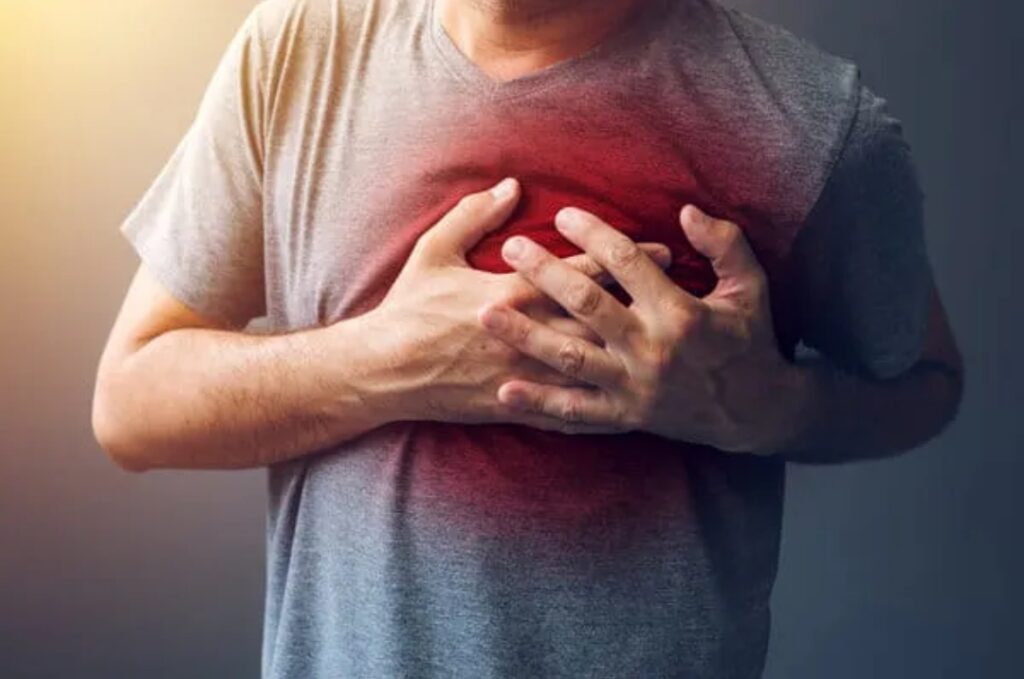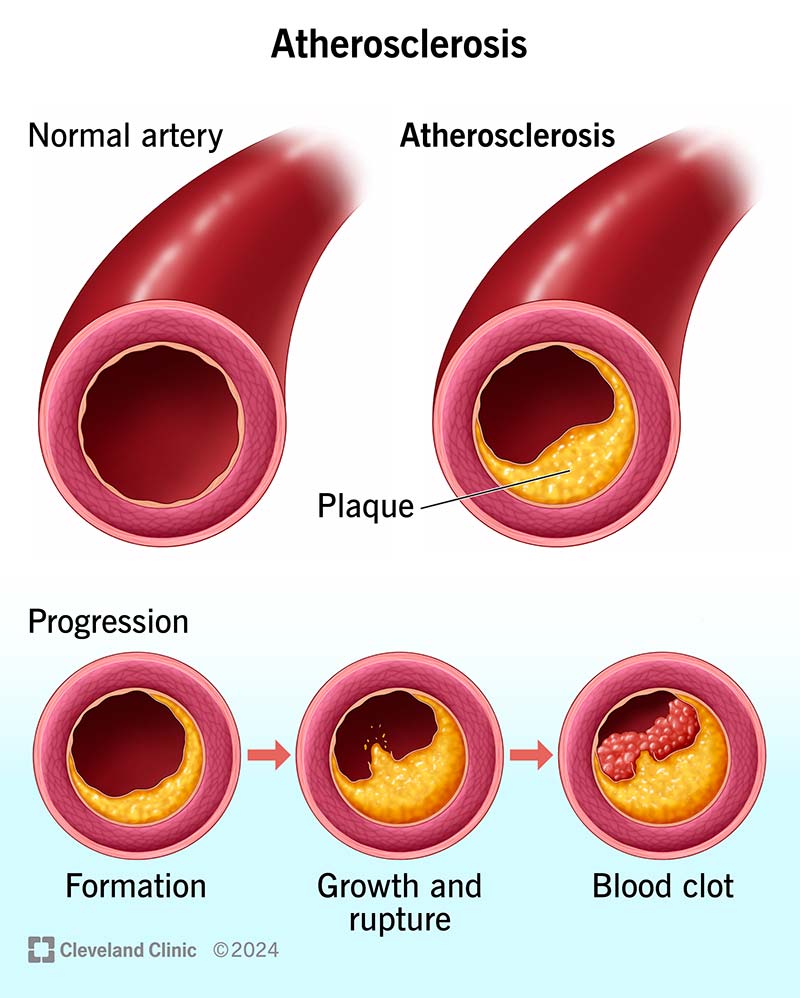Have you noticed the rising cases of heart attacks in younger people?
With increasing rates of hypertension, cardiovascular diseases, and lifestyle-related health issues, you may be thinking:
– Why are heart conditions on the rise among the youth?
– What are the early signs of a heart attack you should never ignore?
– Is the “silent killer” really silent, or are there warning signs we’re missing?
When we think of heart attacks, we often picture crushing chest pain. But did you know some heart attacks come with subtler symptoms?
Discover the causes and hidden symptoms of heart attacks and (BONUS!) 10 essential tips on how to protect yourself and gain a healthy heart.

What is a Heart Attack?
Heart attacks, also known as MYOCARDIAL INFARCTIONS, occur when blood flow to a part of the heart is blocked, causing damage to the heart muscle.
The (heart) blockage is often caused by a buildup of fatty deposits (plaque) in the arteries, a condition known as ATHEROSCLEROSIS. Over time, these plaques can rupture, leading to the formation of a blood clot that obstructs blood flow.
Other causes may include:
– Spasms in coronary arteries (due to stress, smoking, or drug use).
– Blood clots from other parts of the body travelling to the heart.
– Severe narrowing of arteries that reduces oxygen supply to the heart. Recognizing the hidden symptoms early can prevent serious damage.

Commonly Ignored signs of a heart attack
– Unexplained Sudden Fatigue: Severe tiredness that doesn’t improve with rest, especially in women, could signal your heart is struggling.
– Shortness of Breath: Do you feel out of breath during simple activities or while resting? It could mean your heart isn’t pumping effectively.
– Lightheadedness or Dizziness: If you feel faint or dizzy, especially with chest discomfort, seek medical attention immediately.
– Nausea or Vomiting: Many dismiss these as signs of food poisoning or the flu, but they could indicate a heart problem, especially if paired with other symptoms.
– Discomfort in the Neck, Jaw, or Back: Pain in these areas, especially without a clear cause, may be a sign that your heart is in distress.
– Cold Sweats: Breaking out in a sudden, clammy sweat without physical exertion can be a red flag.
What to Do?
If you notice one or more of these signs, don’t hesitate. Call for help immediately. Early action saves lives. Most importantly, DON’T FORGET TO CHECK YOUR BLOOD PRESSURE REGULARLY.
Many heart attacks are preventable with the right lifestyle choices and habits. Protecting your heart starts with understanding what steps you can take to reduce your risk and promote cardiovascular health.
Here are 10 essential tips to help your heart stay healthy:
1. Eat a Heart-Healthy Diet
Your diet plays a significant role in your heart health. Focus on eating foods that are nutrient-rich and low in unhealthy fats, salt, and sugar.
– Recommended foods: Fruits (e.g., berries), vegetables (e.g., spinach), whole grains (e.g., oats), lean proteins (e.g., fish, chicken), and healthy fats (e.g., avocado, nuts).
– Limit or avoid trans fats, red meats, processed foods, and sugary drinks.
2. Stay Active
Regular physical activity strengthens your heart and improves blood circulation.
– Aim for at least 150 minutes of moderate aerobic exercise per week, like brisk walking, swimming, or cycling.
– You can add strength training exercises twice a week to maintain muscle health and improve metabolism.
3. Quit Smoking or being around those who do
Smoking damages your blood vessels and significantly increases your risk of heart disease and heart attacks.
– Seek support through counseling, nicotine replacement therapies, or support groups to quit smoking effectively.
4. Manage stress
Chronic stress can increase blood pressure and strain your heart. Practice relaxation techniques such as meditation, yoga, and deep breathing exercises.
5. Maintain a healthy weight
Excess body weight, especially around the abdomen, puts extra strain on your heart.
– Combine a balanced diet with regular exercise to achieve and maintain a healthy weight.
– Consult a healthcare professional if you need guidance on weight management.
6. Regular Health Check-ups
Keep track of your heart health by monitoring key health indicators like Blood sugar levels, cholesterol, and Blood pressure.
Discuss any family history of heart disease with your doctor and follow their recommendations, including medications if necessary.
7. Limit alcohol intake
Excessive alcohol consumption can lead to high blood pressure, weight gain, and heart problems.
Stick to moderate drinking (Ideally zero alcohol intake is advised): 1 drink daily for women.
8. Get enough sleep
Quality sleep is essential for overall health, including heart health.
Poor sleep can lead to conditions such as high blood pressure and obesity, which increase the risk of heart attacks.
Aim for 7 to 8 hours of sleep per night.
9. Know the warning signs of a heart attack
Recognizing the early signs of a heart attack can save lives.
10. Stay Hydrated
Dehydration strains your heart by reducing blood flow and circulation efficiency.
Drink plenty of water daily to keep your body and heart functioning optimally.
